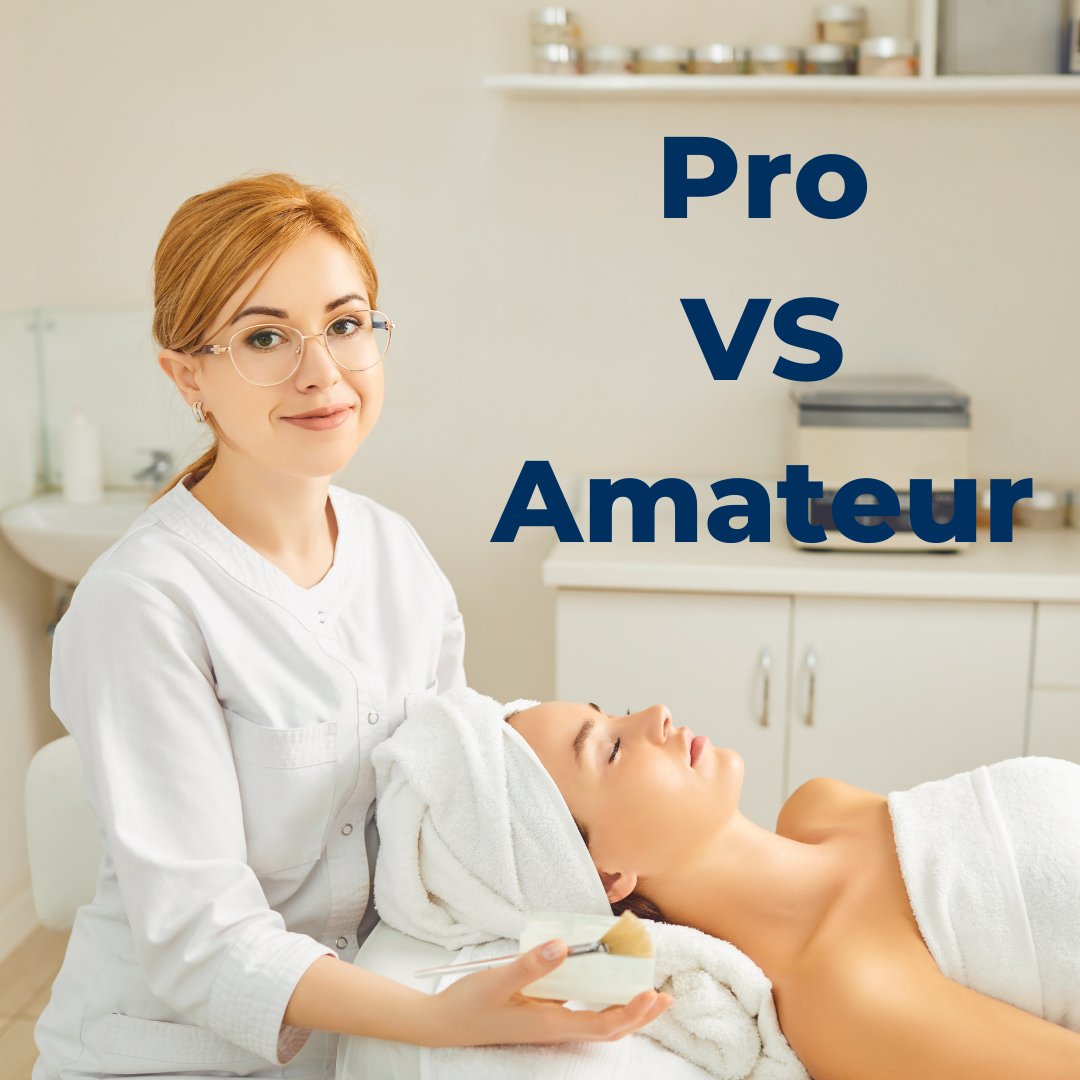
There is no shortage of “beauty experts,” is there? But how do you know if the beauty expert you are following is a PRO or an amateur?
It is important because if you are following the advice of someone who claims to be an “expert” when they are an amateur, you could end up with bad results and a lot of wasted time and money.
Here are 8 tips to know if the “beauty expert” you are following is a professional you can trust.
1- Recognized certifications! A PRO skin care expert is certified! A certified professional has taken training and/or education course in aesthetics and must pass specific written and practical exams to obtain his or her diploma from the Quebec Ministry of Education. Without certifications, the advice given is not PRO advice.
2- Experience. A PRO skin care expert has real clients and practical experience. He/she has worked with clients in a spa, salon, private practice, or in doctors’ offices, such as dermatologists and plastic surgeons. Without practical experience, advice is strictly amateurish. Some practitioners copy the pros on social networks and improvise themselves like a pro. It is therefore important to validate the certifications and the number of years of experience.
3- Trained in skin wellness. A PRO skin care expert is trained in skin wellness and offers several solutions, treatments, and products to address various specific skin needs. With a thorough examination of the skin, he or she is then able to advise you properly. In addition, he will complete a global health assessment to ensure that you have no contraindications to the various treatments proposed. If your beauty expert does not complete a complete health assessment and does not complete a client file, you are in the hands of an amateur.
4- Facial anatomy technique. A PRO skin care expert is trained in facial anatomy and develops techniques based on anatomy. The more trained and experienced a professional is in the anatomy of the face, neck, and décolletage, the more effective their technique is. Without training and experience in facial anatomy, amateurs cannot attest to PRO techniques. If your expert is not able to explain the importance of the bone and muscle structure of the face and its impact on the aging of the skin, I suggest you change practitioners.
5- Professional quality. A PRO skincare expert will personally seek out and use professional quality products, rather than the cheap versions found on Amazon, or mass-produced for the open market. The PRO’s #1 priority is the safety of the actives, and the #2 priority is the results achieved from concentrations designed for a certified professional. Cheap product recommendations are common tactics among amateurs.
6- Science-based. A PRO skin care expert is trained in the science of ingredients in high-tech products and devices. He/she will apply science in product and device selection and can express this knowledge when educating clients. Knowledge of science is important to a PRO. It is essential for results that the treatment or products offered are directly related to your skin type. Only a qualified professional can identify your skin type.
7- Recognize but never diagnose. A PRO skin care expert is trained to recognize several medical conditions affecting the skin and will refer clients to a medical professional in these cases. He explains that medical diagnosis is strictly reserved for licensed health professionals, such as dermatologists. PRO training is essential to know when it’s time to refer to a health care professional.
8- Services complement dermatology. A PRO skin care expert is trained to provide clients with services that complement the treatment advice provided by a dermatologist. Although the term “medical aesthetics” is often used, aesthetics is not a medical practice and aestheticians do not diagnose, prescribe, or treat skin conditions or diseases. Instead, the PRO skin care expert provides solutions that complement and support dermatological treatments.
The common denominator for this advice is certification, training, and experience. Make sure the advice you take is from a certified professional and that the professional has years of training and experience working hands-on with clients in real-world skincare applications.
Your skin care professional should only recommend products and devices that they know are backed by research and/or science and have been tested for safety, quality and effectiveness and then use them as well.
Hobbyists are not PROs when it comes to skincare, so make sure the “beauty expert” you follow is a PRO.
Stay safe. Stay informed!


